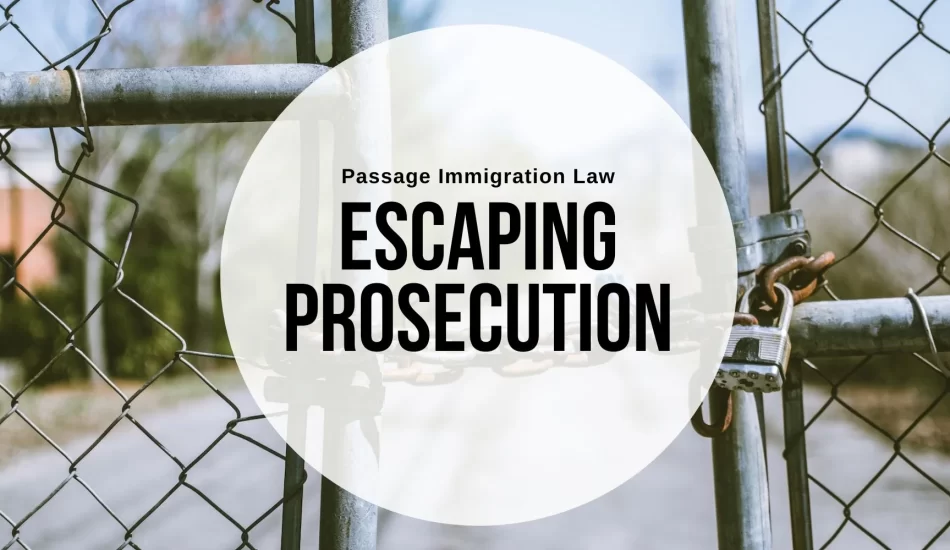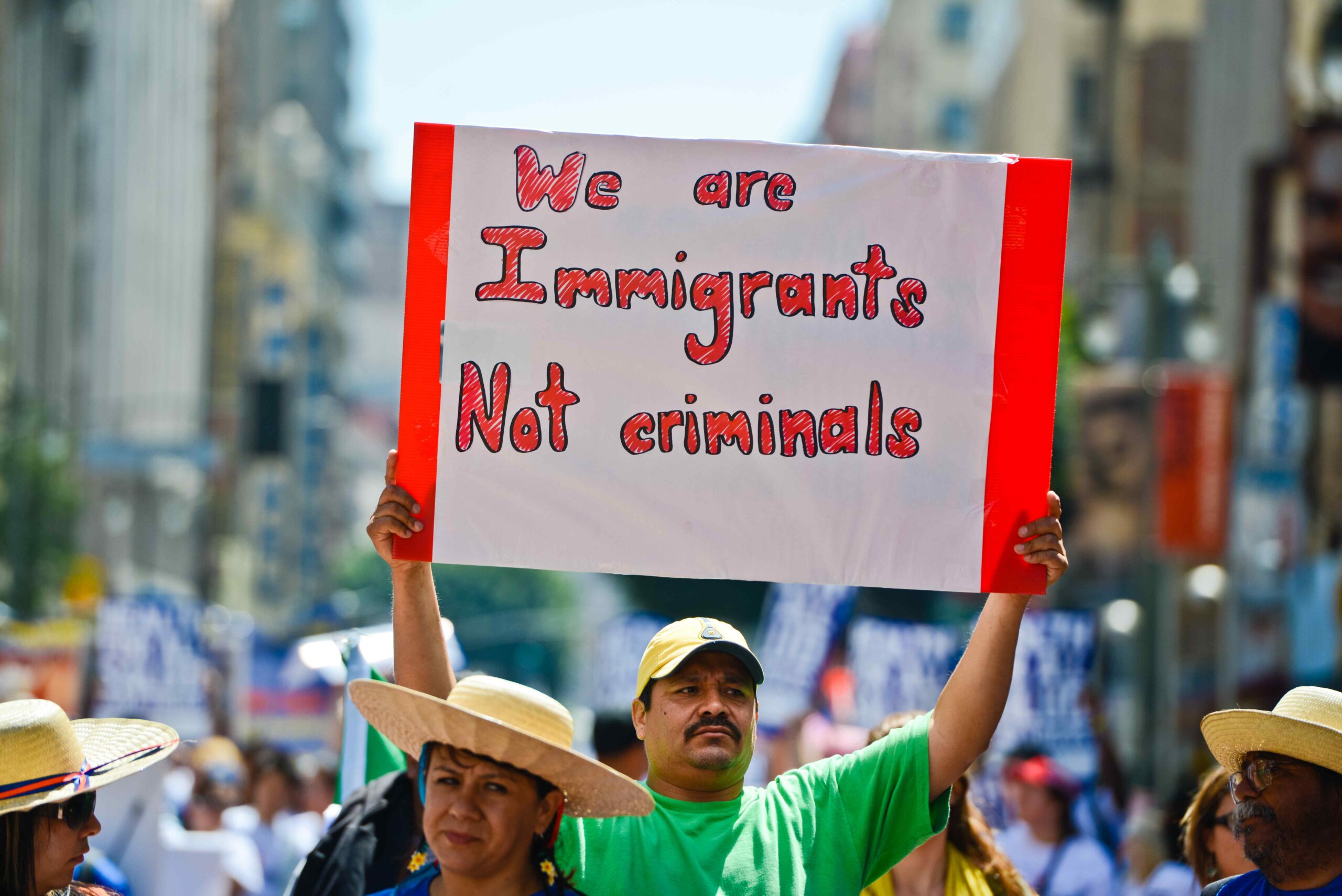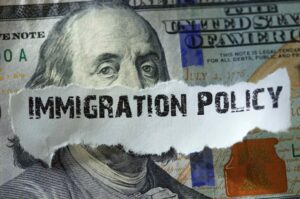Can Asylum Seekers Be Sent to Third Party Countries?

People escaping violence and persecution in other countries in crisis have the right to request asylum at the US border without being criminalized, turned back, used for political stunts, or separated from their children. The Trump administration implemented the “Migrant Protection Protocol,” commonly referred to as the “Remain in Mexico” policy, in January 2019. Under the policy, non-Mexican asylum seekers entering the US could be deported to Mexico while their asylum cases are processed. To avoid deportation, migrants must explicitly state that they fear persecution or torture in Mexico, aligning with the Canada-US Safe Third Country Agreement.

Upon taking office, President Biden declared several Executive Orders impacting asylum seekers at the US border, including one that created a task force to reunite separated families and others that began to outline a vision for a humane asylum system and reversal of Trump Administration policies, reflecting on the safe third country principle.
On December 27, 2022, the Supreme Court upheld Title 42, the Trump-era policy that turned asylum seekers away under the guise of public health, a critical moment for US asylum law and the safe third country agreement.
What Is Title 42, and How Is It Impacting Asylum Seekers for Third Country?
Despite established rights under US and international asylum law, people’s access to asylum at the border was severely limited under the Trump Administration, and many of the most severe policies continued well into the Biden Administration, challenging the third country asylum rule.
In March 2020, the Trump Administration implemented a public health rule to turn away most asylum seekers at the border, without giving them a chance to present their cases for asylum. The rule is commonly called “Title 42” because its legal authority derives from Title 42 of the US Code, a point of contention in the context of the safe third country agreement and third country safe agreement.
The Supreme Court Upheld Title 42 on December 27, 2022
After over a year of immigration advocates’ and health officials’ calls to end Title 42, President Biden eventually announced that the policy would be rolled back, effective in May of 2022. Unfortunately, a federal judge declared an injunction to prevent the damaging policy from ending. On November 15, a different federal judge struck down Title 42; however, on December 27, the Supreme Court issued a decision to uphold it. The Supreme Court’s decision will prolong the use of public health justifications as an excuse to deny asylum seekers their legal right to protection in the US, further complicating the Canada-US asylum agreement.

Despite US legal obligations under international and domestic law to provide all asylum seekers with the right to seek safety, Title 42 had been used to justify nearly 2.5 million expulsions between March 2020 and December 2022. Public health is not a viable rationale for this policy to continue, insofar as international borders have remained open to other travellers for most of the COVID-19 pandemic. In addition, nationally, most pandemic-era limitations have been reversed, raising questions about the safe third country concept and the application of third country asylum rules.
Remain in Mexico Policy
The Remain in Mexico policy, officially known as the Migrant Protection Protocols (MPP), represents a pivotal United States immigration policy initiated in January 2019 under President Trump’s administration. This policy significantly influences immigration dynamics across the US-Mexico border. It mandated that certain asylum seekers await their US immigration court proceedings in Mexico, often without substantial access to legal counsel.
Despite the Biden Administration’s efforts to terminate this program, a federal court’s intervention maintained it until the Supreme Court’s subsequent decision favoured the administration’s stance.
This policy impacted over 75,000 Mexican asylum seekers, compelling them to endure their US court hearings in Mexico, predominantly within northern border towns. Here, they encountered formidable challenges in gathering evidence and preparing for trials conducted in English, all while striving to safeguard their families.
The Impact of Restrictive Policies
The Remain in Mexico policy and the over 2 million Title 42 expulsions necessitated Mexico to enhance its humanitarian support as asylum seekers languished, sometimes for extended periods, hoping to secure safety in the US. These asylum seekers, stationed in border towns, were exposed to risks such as murder, extortion, rape, and other forms of violence. Organized human smugglers and criminal factions exploited the desperate situations of asylum seekers, benefiting from border regulations that stripped them of their rights.
Racial and linguistic barriers exacerbated the plight of Black asylum seekers, subjecting them to heightened violence and discrimination throughout their journey and at the border. Notably, organizations like the Haitian Bridge Alliance and Espacio Migrante have documented significant discrimination in Tijuana, especially concerning access to services amid the pandemic.
Asylum seekers fortunate enough to reach the US must navigate the complexities of immigration court to substantiate their stay. The likelihood of obtaining asylum dramatically increases with legal representation; a study revealed that asylum seekers with submitted applications were five times more successful in court with an attorney. Unlike the criminal legal system in the US, asylum seekers are not entitled to government-funded attorneys.
Do You Need to Talk to an Asylum Lawyer?
Your asylum lawyer will be able to complete and file your petition with the US government on your behalf. Your immigration lawyer will also be there to answer your questions every step of the way, assist you in filing for work authorization while your application is pending, and check on your case status so you know where you stand. If necessary, your lawyer can also represent you in court, and if you’re unfortunately referred for removal proceedings, your attorney will work hard to get you the best possible results.
If you’re considering asking for asylum in the US, or if you’ve already filed your petition, Passage Immigration Law may be able to help you get the best possible outcome. Call to schedule an appointment today at (503) 427-8243. Or, you can schedule a consultation here.
